- Learning time
- 10 minutes
- First play time
- 60 minutes
Whale Riders
Designed by: Reiner Knizia
In Whale Riders you, the players, are the titular riders of whales, travelling the coastline in search of shells, kelp and- in a possibly self-defeating turn of events – blubber. Gather what you need to fulfil contracts and you get pearls in return. The player with the most pearls wins.
The board shows the coastline you’ll travel, starting at the top of the board and going to the bottom and back again. Tiles are placed along the way, showing what can be found (or bought) at each juncture of the journey. Players are dealt three contract cards and three gold coins before play begins.
On your turn you have two actions to spend: these can be used to move one space along the coast, pick/buy a tile, get a gold coin, or complete as many contracts as you can (and then drawing new ones into your hand). Essentially you’re simply gathering the resources to turn them into pearls, but there are a number of factors to consider along the way: at the start of the game, the more rewarding tiles (with three shells instead of one, for example) are further away, enticing you to rush on along the path. But on the other hand, there’s (almost) always one tile available for free, so it’s tempting to lag behind and keep picking up these less alluring tiles at no cost. The ‘free’ tile options can evaporate however: at the end of each turn when tiles have been taken, the empty spaces are replenished from a bag, and there are a number of storm tiles that don’t do anything except clog up the board, eventually filling the ‘free’ spaces and making everything cost money.
The desire for money also compromises the ideal of fulfilling several contracts in one go: it’s possible to do so, but it’s very likely you’ll need the gold the contracts award you in order to buy more tiles, so you may find yourself completing one contract at a time, using up your precious actions. Last, but far from least, are the other players, who will be taking the tiles you desperately need. When anyone makes it back to the start of the journey, it’s possible to simply buy pearls with any gold you have. Once these have all been claimed the game ends instantly.
The guru's verdict
-
Take That!
Take That!
Nobody can steal anything from each other, there's no fighting or pushing anyone out of the way. But all the same there is a sense of heady interaction in how - particularly with more players - everyone is taking stuff you need!
-
Fidget Factor!
Fidget Factor!
Low - the rules are extremely simple, and the fact you only ever have three contracts keeps the decision-making from spiralling into overload.
-
Brain Burn!
Brain Burn!
It's not a game that should give anyone a headache. Your plans A B and C may all crumble before your eyes, but there are new tiles coming out and new plans to be quickly formed.
-
Again Again!
Again Again!
Randomness guaranteed from the tile and contract draw, and player input giving the game a really dynamic feel even if the experience won't vary hugely from game to game.



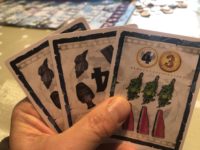
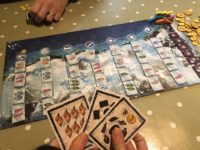
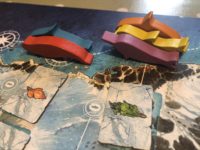
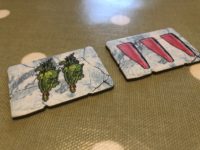
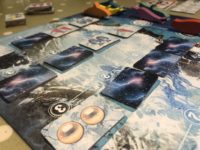


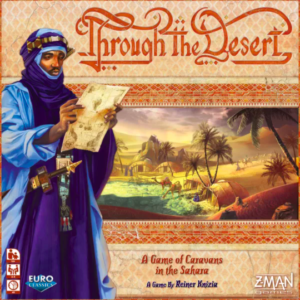
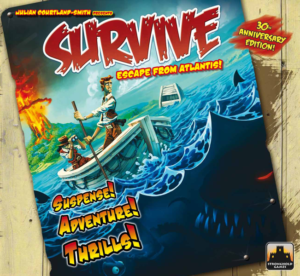
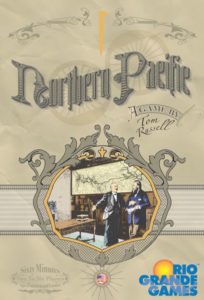
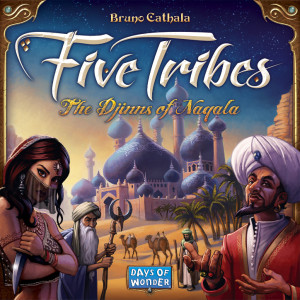

Sam says
I'm always eager to try a Reiner Knizia game: he is masterful at making tough decisions arise from simple rules, and seems to know exactly how long a game should last for the fun it inspires. The theme here is frankly nuts and it seems incongruous at best that the 'whale riders' would cut up their own mode of transport (and presumably, friends) in return to pearls. Outside of that bizarro aspect though, this is as we anticipated: good fun. Not Knizia's best, but well worth a few visits.